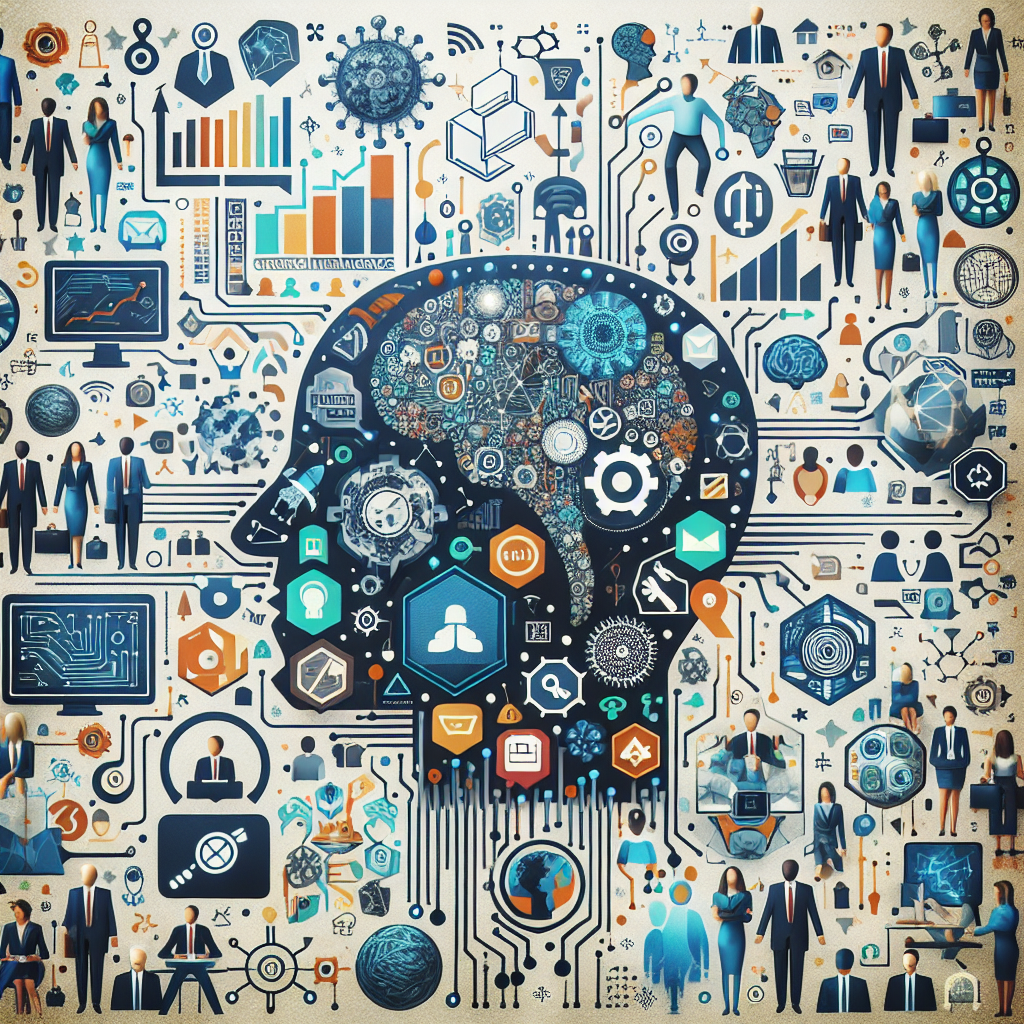Artificial General Intelligence (AGI) is a term that refers to a type of artificial intelligence that possesses the ability to understand, learn, and apply knowledge across a wide range of tasks and domains. While traditional artificial intelligence systems are designed to perform specific tasks within a limited scope, AGI is intended to mimic human-level cognitive abilities and exhibit general intelligence.
The potential benefits of AGI for businesses and society are vast and far-reaching. From improved efficiency and productivity to innovative solutions for complex problems, AGI has the potential to revolutionize the way we work, live, and interact with technology. In this article, we will explore the various benefits of AGI for businesses and society, as well as address some common questions and concerns surrounding this emerging technology.
Benefits of AGI for Businesses:
1. Improved Efficiency: One of the primary benefits of AGI for businesses is the potential for improved efficiency and productivity. AGI systems are capable of learning and adapting to new tasks and environments, which can help streamline workflows, automate repetitive tasks, and optimize processes for maximum efficiency.
2. Enhanced Decision-Making: AGI systems have the ability to analyze vast amounts of data, identify patterns, and make informed decisions based on that information. This can help businesses make better strategic decisions, improve forecasting accuracy, and identify opportunities for growth and innovation.
3. Personalized Customer Experiences: AGI systems can analyze customer data and preferences to deliver personalized recommendations, targeted marketing campaigns, and tailored customer experiences. This can help businesses build stronger relationships with customers, increase loyalty, and drive revenue growth.
4. Innovation and Creativity: AGI systems have the potential to generate new ideas, solutions, and innovations that may not have been possible with traditional AI systems. By leveraging AGI technology, businesses can unlock new opportunities for product development, process improvement, and market expansion.
5. Cost Savings: By automating repetitive tasks, optimizing processes, and improving decision-making, AGI can help businesses reduce costs, increase operational efficiency, and drive profitability. This can free up resources to invest in strategic initiatives, research and development, and growth opportunities.
Benefits of AGI for Society:
1. Improved Healthcare: AGI has the potential to revolutionize the healthcare industry by enabling more accurate diagnoses, personalized treatment plans, and predictive modeling for disease prevention. AGI systems can analyze complex medical data, identify trends and patterns, and support healthcare professionals in delivering better patient outcomes.
2. Education and Training: AGI can enhance the learning experience by providing personalized tutoring, adaptive learning platforms, and interactive educational tools. AGI systems can analyze student performance data, identify areas for improvement, and tailor instruction to meet individual learning needs.
3. Environmental Sustainability: AGI can help address environmental challenges by optimizing resource allocation, predicting environmental risks, and developing sustainable solutions for energy production, waste management, and conservation efforts. AGI systems can analyze environmental data, identify trends and patterns, and support decision-making for sustainable development.
4. Public Safety and Security: AGI can improve public safety and security by analyzing vast amounts of data to detect threats, predict risks, and prevent crime. AGI systems can support law enforcement agencies, emergency responders, and security organizations in monitoring and responding to potential threats in real-time.
5. Social Welfare and Inclusion: AGI can help promote social welfare and inclusion by providing access to information, services, and opportunities for marginalized communities. AGI systems can support initiatives for poverty reduction, healthcare access, education equality, and social empowerment.
FAQs:
1. What is the difference between AGI and narrow AI?
AGI refers to artificial intelligence systems that have the ability to understand, learn, and apply knowledge across a wide range of tasks and domains, mimicking human-level cognitive abilities. Narrow AI, on the other hand, refers to artificial intelligence systems that are designed to perform specific tasks within a limited scope, such as image recognition, speech recognition, or natural language processing.
2. How does AGI learn and adapt to new tasks?
AGI systems learn and adapt to new tasks through a process known as machine learning, which involves analyzing data, identifying patterns, and making predictions based on that information. AGI systems can continuously learn from new data, refine their algorithms, and improve their performance over time.
3. Are there any ethical concerns surrounding AGI?
There are ethical concerns surrounding AGI, including issues related to privacy, security, bias, accountability, and job displacement. It is important for businesses and society to address these concerns proactively and develop ethical guidelines for the responsible use of AGI technology.
4. How can businesses and society prepare for the adoption of AGI?
Businesses and society can prepare for the adoption of AGI by investing in research and development, talent acquisition, training and education, and infrastructure development. It is important for organizations to develop a strategic roadmap for integrating AGI into their operations and leveraging its benefits for competitive advantage.
In conclusion, AGI has the potential to transform businesses and society by improving efficiency, enhancing decision-making, enabling innovation, and addressing complex challenges. By understanding the benefits of AGI and proactively addressing ethical concerns, businesses and society can harness the power of this emerging technology for positive impact and sustainable growth.

